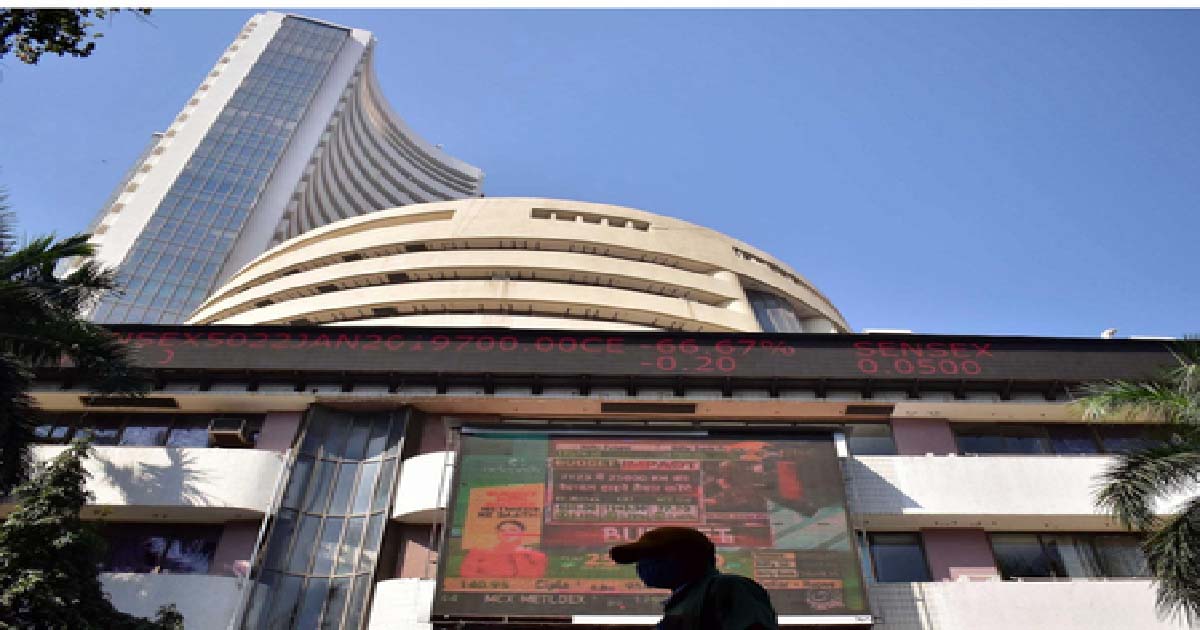Business
Reliance Capital bidders flag off multiple legal issues involving Rs 20,000 crore liability

As the deadline for the submission of binding bids approaches, the bidders of Reliance Capital, including Hinduja, Torrent, Zurich, and Piramal have flagged off various legal issues to the lenders and Administrator, involving Reliance Capital and its subsidiaries.
These legal issues involve a cumulative liability of Rs 22,000 crore, and they need quick resolution for the successful closure of RCAP’s resolution plan.
According to sources, the bidders are likely to make a condition precedent of these issues to any payment to the lenders.
The two big issues flagged off by the bidders are the impending resolution of Reliance Home Finance Ltd (RHFL) and the legal battle between the Administrator and IDBI Trusteeship for the control of Reliance General Insurance’s shares, which is pending in the NCLT.
Authum Investment and Infrastructure Ltd had been selected as the successful bidder for RHFL in June 2021, but the resolution process has not yet been completed due to various litigation involving the debenture holders. The total debt of RHFL is Rs 11,500 crore.
As far as Reliance General Insurance is concerned, the Independent actuarial Tower Watson has valued this business at Rs 9,500 crore.
Apart from these, the two other legal cases flagged off by the bidders are Axis Bank’s claim of Rs 150 crore against Reliance Capital, which the bank has lost in the NCLT, and a case involving Administrator and IndusInd Bank, involving arbitration of Nippon Asset Management shares. The total liability in this matter is Rs 650 crore.
The last date for submitting binding bids is November 28.
The quick resolution of these legal matters is a challenge for the Administrator for the successful closure of the RCAP resolution plan.
Reliance Capital had received 14 non-binding bids for its multiple businesses. Six companies had submitted bids for the entire company, while the rest of the bidders had submitted bids for its multiple subsidiaries.
Torrent, IndusInd, Oaktree, Cosmea Financial, Authum Investment, and B Right Real Estate have submitted bids in the range of Rs 4,000 crore to Rs 4,500 crore for Reliance Capital’s entire assets.
For Reliance General Insurance business, Piramal Finance has bid Rs 3,600 crore, while Zurich Insurance’s bid is Rs 3,700 crore.
The third bidder, Advent, has bid Rs 7,000 crore for Reliance General Insurance.
Jindal Steel and Power and UVARC have submitted bids for Reliance Capital’s ARC business.
For other assorted assets of Reliance Capital, 3 bidders — Choice Equity, Global Fincap, and Grand Bhawan — have submitted the bids.
RCAP’s life insurance business, RNLIC, had not received any bid, but later on Aditya Birla Capital and Nippon Life Insurance, which is already holding 49 per cent equity in RNLIC, have evinced interest in acquiring RCAP’s 51 per cent stake in this business.
At the beginning of the resolution process of Reliance Capital over 54 companies had submitted Expression of Interest (EOI) for its various assets, out of which only 14 are now in the fray.
Business
India reaches 709 million active UPI QRs, logs 59.33 billion transactions in July-Sep

Mumbai, Dec 18: The unified payments interface (UPI) transaction volumes rose 33.5 per cent (year-on-year) to 59.33 billion transactions in the July-September period, as transaction value grew 21 per cent to Rs 74.84 lakh crore, a report showed on Thursday.
India reached 709 million active UPI QRs, marking a 21 per cent increase since July 2024. Dense QR acceptance across kiranas, pharmacies, transport hubs, and rural markets has made scan-and-pay the default payment mode nationwide, according to the report by Worldline India.
Person-to-merchant (P2M) transactions continued to outpace person-to-person (P2P), reflecting UPI’s dominance in everyday retail payments.
P2M transactions were up 35 per cent to 37.46 billion transactions while P2P transactions rose 29 per cent to 21.65 billion transactions, the report said.
The third quarter (Q3 2025) further reinforced India’s position as the world’s most dynamic real-time payments economy — where every scan, tap, and click is reshaping consumer and merchant behaviour.
The average ticket size declined to Rs 1,262 (from Rs 1,363), highlighting increased usage for micro-transactions such as mobility, food, healthcare essentials, and hyperlocal commerce.
Point of sale (PoS) terminals grew 35 per cent to 12.12 million (July 2024–July 2025). Bharat QR stood at 6.10 million, witnessing marginal decline amid the shift toward UPI QR dominance.
Private banks led acceptance deployment, accounting for 84 per cent market share. While credit card issuance grew by 8 per cent (on-year) to 113.39 million cards, debit cards reached 1.02 billion and prepaid cards stood at 470.1 million.
Credit card transactions grew 26 per cent to 1.45 billion, with transaction value at Rs 6.07 lakh crore. Debit card transactions declined 22 per cent, reflecting migration of low-ticket spends to UPI, the report showed.
Mobile and tap-based payments continued to accelerate, with contactless adoption gaining momentum across metros, mobility services, and quick-service retail.
“The outlook for Q4 2025 and early 2026 points to accelerated innovation and deeper ecosystem integration. Interoperable QR is expected to move from pilot phases to everyday usage across mobility, healthcare, fuel stations, and public utilities—delivering a unified scan-and-pay experience,” the report mentioned.
Business
Indian rupee likely to bounce back strongly in 2nd half of next fiscal: SBI report

New Delhi, Dec 17: Geopolitical uncertainties driven by the delay in the India-US trade deal have been the single-most important reasons for the rupee sliding against the US dollar, an SBI Research report said on Wednesday, adding that the rupee is likely to bounce back strongly in the second half of the next fiscal.
India’s trade data shows the remarkable resilience in navigating through prolonged uncertainty, more protectionism and labour supply shocks.
“While the geopolitical risk index has moderated since April 2025, the current average value of the index for April-October 2025 is much greater than its decadal average, which indicates how much pressure global uncertainties are exerting on INR,” State Bank of India’s (SBI) Group Chief Economic Advisor, Dr Soumya Kanti Ghosh, said.
Dr Ghosh further stated that consistent with their empirical analysis, “the rupee is currently in a depreciating regime and is likely to exit it”.
After breaching the psychologically important mark of 90 per US dollar, the rupee crossed the 91-level on Tuesday.
However, the rupee staged a sharp recovery on Wednesday, trading as strong as 90.25 during the day, as the cooling of crude prices also contributed to improved sentiment.
According to the SBI report, the data also indicates that the current fall is the quickest (in terms of number of days) of the rupee, scaled to 5 per USD. In less than a year, the rupee has slid from 85 to 90 per dollar.
The current slide appears to be primarily driven by FPI outflows, chiefly equities (after two years of robust inflows) and uncertainty regarding the US-India trade deal.
Since April 2, 2025, when the US announced sweeping tariff hikes across economies, the Indian rupee (INR) has depreciated by 5.7 per cent against USD (most amongst the major economies), notwithstanding sporadic phases of appreciation owing to optimism over the US-India trade deal.
“While INR is the most depreciated currency, it is not the most volatile. This clearly indicates that the 50 per cent tariff imposed on India is one of the major factors behind the current phase of rupee depreciation,” the SBI report noted.
Business
Indian markets hit fresh highs in November, outshine global peers: Report

Mumbai, Dec 17: Indian equity markets touched fresh all-time highs in November and clearly outperformed global markets, a new report said on Wednesday.
The data compiled by PL Asset Management said India emerged as a bright spot at a time when many global markets struggled due to weak technology stocks, fading enthusiasm around artificial intelligence and soft economic data from China.
The report noted that record-low inflation, steady domestic growth and reasonable valuations improved the overall outlook for investors.
“While global markets remained uneven, India benefited from strong local demand, supportive liquidity and a predictable policy environment,” the report said.
Inflation played a major role in boosting market sentiment during the month. Consumer price inflation fell sharply to just 0.25 per cent, the lowest level on record and far below the Reserve Bank of India’s target of 4 per cent.
This sharp fall strengthened expectations of further interest rate cuts, which supported equity valuations. Reflecting confidence in the economy, the RBI raised its GDP growth forecast for FY26 to 7.3 per cent.
India also recorded strong GDP growth of 8.2 per cent in the second quarter of FY26, reinforcing its position as the fastest-growing major economy in the world, the report said.
Domestic economic indicators remained healthy despite global challenges. Manufacturing activity stayed strong, even though exports were slightly affected by tariffs.
Goods and Services Tax collections remained robust at Rs 1.70 lakh crore, as per the report.
Festive season spending also supported growth. In addition, India’s current account deficit improved to 1.3 per cent of GDP.
Global markets, meanwhile, showed signs of fatigue. US technology stocks faced profit booking, China and Hong Kong markets weakened due to poor economic data, and investors turned to precious metals for safety.
Crude oil prices softened amid expectations of interest rate cuts by the US Federal Reserve. Against this global backdrop, India’s stable fundamentals helped it continue to outperform.
Siddharth Vora, Head – Quant Investment Strategies & Fund Manager, PL Asset Management, said, “Indian markets continue to demonstrate relative resilience at a time when global risk assets are undergoing a phase of recalibration.”
-

 Crime3 years ago
Crime3 years agoClass 10 student jumps to death in Jaipur
-

 Maharashtra1 year ago
Maharashtra1 year agoMumbai Local Train Update: Central Railway’s New Timetable Comes Into Effect; Check Full List Of Revised Timings & Stations
-

 Maharashtra1 year ago
Maharashtra1 year agoMumbai To Go Toll-Free Tonight! Maharashtra Govt Announces Complete Toll Waiver For Light Motor Vehicles At All 5 Entry Points Of City
-

 Maharashtra1 year ago
Maharashtra1 year agoFalse photo of Imtiaz Jaleel’s rally, exposing the fooling conspiracy
-

 National News1 year ago
National News1 year agoMinistry of Railways rolls out Special Drive 4.0 with focus on digitisation, cleanliness, inclusiveness and grievance redressal
-

 Maharashtra1 year ago
Maharashtra1 year agoMaharashtra Elections 2024: Mumbai Metro & BEST Services Extended Till Midnight On Voting Day
-

 National News1 year ago
National News1 year agoJ&K: 4 Jawans Killed, 28 Injured After Bus Carrying BSF Personnel For Poll Duty Falls Into Gorge In Budgam; Terrifying Visuals Surface
-

 Crime1 year ago
Crime1 year agoBaba Siddique Murder: Mumbai Police Unable To Get Lawrence Bishnoi Custody Due To Home Ministry Order, Says Report












